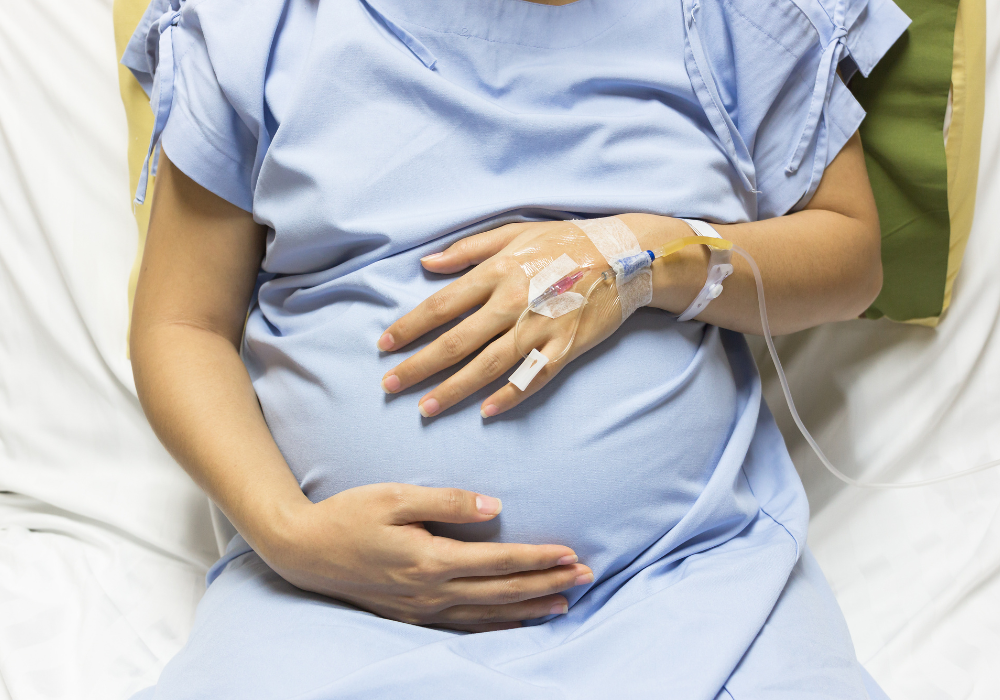More pregnant women and new moms died the year the pandemic began, but it wasn’t just COVID-19 and medical complications that caused this tragic increase.
Jason Gordon | February 13, 2023

A new research study focusing on the mortality rate of pregnant women and women who died within a year of being pregnant shows a dramatic increase in non-medical deaths.
Data on the deaths of 4,535 women from 2019-2020 were gathered from the National Center for Health Statistics and Center for Disease Control WONDER database.
- The mortality rate for non-medical, or nonpregnancy causes rose 36 percent (from 26.4 to 36.0 per 100,000 live births).
- The mortality rate for pregnancy-associated causes rose 22 percent (from 27.5 to 33.6 per 100,000 live births).
Two faculty members in Texas State University’s Department of Psychology, Professor Krista Howard and Assistant Professor Jessica Perrotte, collaborated on the study along with researchers from The University of Texas at San Antonio and the University of Nevada, Las Vegas. It was published recently in JAMA Network Open.
Howard said the study shows a correlation in the onset of the COVID-19 pandemic and the increase in mortality rates for non-medical deaths.
“Up until the pandemic, a higher proportion of pregnancy-related deaths were medical. In 2020, it shifted,” Howard said. “The pandemic really put a pause on social interaction. Many women had an increase in mental health issues, such as postpartum depression, and a decrease in access to healthcare. If new moms don’t have access to healthcare, they won’t go in for much-needed prenatal and follow-up care post birth.”
In addition, drug poisoning, motor vehicle deaths, and homicide all showed significant increases in the study.
“Use of alcohol and drugs are a maladaptive coping mechanism,” Howard said. “People with higher levels of stress may turn to these because it’s the only thing they have, which in turn may lead to higher mortality rates.”
The study showed a distinction in mortality rates by race and ethnicity in both pregnancy-related and nonpregnancy categories, as compared to non-Hispanic White women. American Indian or Alaska Native women are between 2.88 to 5.25 times higher risk of death across all causes. Black women are 5.3 times more likely to die from homicide.
“I would hope a study like this would educate both patients and providers,” Howard said. “We need new public health initiatives addressing pandemic-related issues so we can help reduce preventable deaths. We recommend additional screening for mental health, substance abuse, and possible intimate partner violence. Pregnant and recently pregnant women need to know it's okay to reach out for social help. They not only need medical care but also friendships and social support, so they can talk about these issues that are so important.”
Howard cited a CDC study released in September that said more than 80 percent of pregnancy-related deaths were preventable. Mental health conditions (including overdose/drug poisoning and suicide) were the leading underlying cause of death, accounting for 23 percent.
“We really need to help get rid of the stigma that’s been associated with depression for so long,” she said. “It keeps people from seeking help and increases negative coping behaviors, including substance use. Mental health issues increased dramatically because of the pandemic. Screening for depression and anxiety during pregnancy and postpartum is necessary.”
Howard said the subject should be investigated further. She hopes to include data from COVID-19 pandemic years 2021 and 2022 in future research.
“By following this research further, the better we can understand the impact of the pandemic on maternal mortality,” she said. “Based on what is shown in the first year of the pandemic, more investigation would definitely be warranted.”
Share this article
For more information, contact University Communications:Jayme Blaschke, 512-245-2555 Sandy Pantlik, 512-245-2922 |
